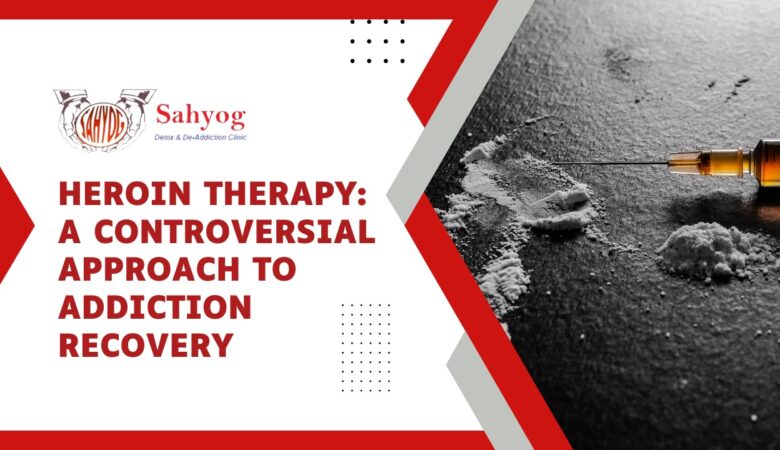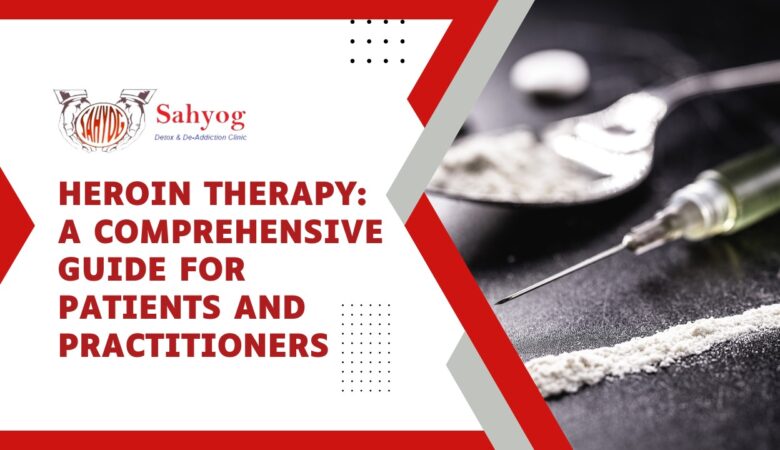Heroin Therapy: A Controversial Approach to Addiction Recovery
Introduction to Heroin Therapy Welcome to a groundbreaking discussion on addiction recovery that is sure to challenge conventional beliefs and spark curiosity. Today, we delve into the controversial world of Heroin Therapy – an unconventional approach that has stirred both intrigue and skepticism within the realm of addiction treatment. Join us as we explore the history, mechanics, controversies, and potential future of this polarizing method. Strap in for a riveting journey through uncharted waters in the pursuit of understanding heroin therapy’s role in battling addiction. The History and Evolution of Heroin Therapy Heroin therapy, also known as heroin-assisted treatment (HAT), has a rich history that dates back to the early 20th century. It was initially used in the medical field for pain relief and cough suppression due to its potent analgesic properties. However, over time, its potential for addiction became evident, leading to stricter regulations. In the 1980s, Europe started exploring heroin therapy as a controversial approach to treat individuals with severe opioid addictions who had not responded well to traditional methods. Countries like Switzerland and Germany pioneered supervised programs where patients received pharmaceutical-grade heroin under strict medical supervision. The evolution of heroin therapy has seen mixed reactions from different parts of the world. While some view it as a compassionate way to address addiction issues, others criticize it for potentially normalizing drug use or enabling substance dependence without addressing underlying causes. Despite its controversies, the history of heroin therapy continues to evolve as researchers explore new ways to integrate it into comprehensive addiction treatment strategies. How Heroin Therapy Works Heroin therapy, also known as heroin-assisted treatment, operates on a unique premise. Patients who have not found success with traditional methods like methadone maintenance are provided pharmaceutical-grade heroin in a supervised clinical setting. The process involves carefully dosing the individual with heroin to stabilize their cravings and withdrawal symptoms. By providing controlled access to the drug, patients can focus on rebuilding their lives without resorting to illegal means of obtaining heroin. Under strict medical supervision, patients receive their doses multiple times a day initially and gradually reduce frequency as they progress in their recovery journey. This approach aims to break the cycle of addiction by removing the need for individuals to engage in unsafe practices associated with street drugs. Heroin therapy works by offering a controversial yet potentially effective way for individuals struggling with severe opioid use disorder to regain control over their lives. Alternatives to Heroin Therapy When it comes to treating addiction, there are various alternatives to heroin therapy that individuals can explore. One such option is cognitive-behavioral therapy (CBT), which focuses on changing thought patterns and behaviors associated with substance abuse. Another alternative is medication-assisted treatment (MAT), using medications like methadone or buprenorphine to help manage withdrawal symptoms and cravings. Holistic therapies such as yoga, acupuncture, and mindfulness practices have also shown promise in helping individuals recover from addiction by addressing physical, mental, and emotional aspects of their well-being. Peer support groups like Narcotics Anonymous provide a supportive community for individuals struggling with addiction to share experiences and receive guidance from others who understand their journey. It’s essential for individuals seeking alternatives to heroin therapy to consult with healthcare professionals or addiction specialists to determine the most suitable approach for their unique needs. By exploring different options and finding what works best for them, individuals can take positive steps towards overcoming addiction and leading a healthier life. The Importance of Proper Implementation and Supervision Proper implementation and supervision are crucial factors in the success of heroin therapy. When it comes to administering a controversial treatment like this, attention to detail is key. The dosage must be carefully monitored, and patients need constant support throughout the process. Qualified healthcare professionals play a significant role in ensuring that the therapy is carried out safely and effectively. Their expertise can make all the difference in guiding individuals towards recovery. Without proper oversight, there is a risk of misuse or potential harm to those undergoing heroin therapy. It’s essential to have strict protocols in place to prevent any adverse outcomes. The importance of proper implementation and supervision cannot be overstated when considering such a delicate and complex form of addiction treatment. Controversies Surrounding Heroin Therapy Controversies surrounding heroin therapy have sparked heated debates in the addiction recovery community. Critics argue that providing heroin to individuals struggling with addiction may perpetuate substance abuse rather than aid in recovery. They raise concerns about the potential for misuse and diversion of prescribed opioids. Opponents also question whether heroin therapy is a sustainable long-term solution or simply a temporary fix. Additionally, ethical considerations come into play regarding the use of such a potent and addictive drug as part of a treatment plan. On the other hand, proponents of heroin therapy advocate for its effectiveness in helping individuals break free from the cycle of addiction when traditional methods have failed. They argue that under proper supervision and guidance, this approach can provide valuable support to those who have not found success with other treatments. As controversies continue to surround heroin therapy, ongoing research and discussions are essential to determine its place in addressing addiction issues effectively. Success Stories and Criticisms Success stories of individuals who have undergone heroin therapy are truly inspiring. Many have shared how this unconventional approach helped them break free from the vicious cycle of addiction and reclaim their lives. These individuals often speak about the personalized support they received during their journey towards recovery. On the other hand, criticisms against heroin therapy mainly revolve around concerns regarding potential relapse and dependency on a controlled substance. Skeptics argue that using heroin as a treatment for addiction may not address underlying issues contributing to substance abuse. Despite these criticisms, it’s important to acknowledge that every individual responds differently to various forms of treatment. What works for one person may not work for another. It’s essential to consider these diverse perspectives when evaluating the effectiveness of heroin therapy in addiction recovery journeys. The Future


